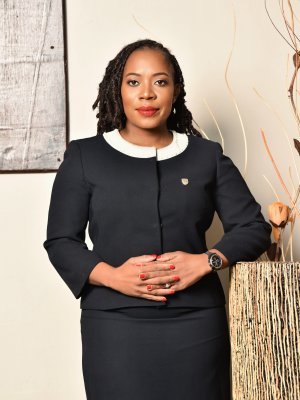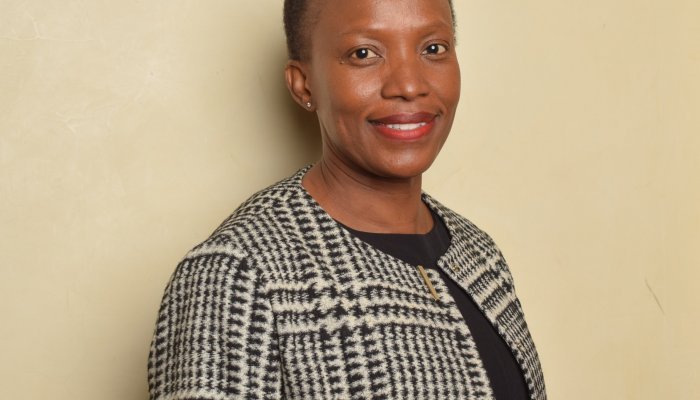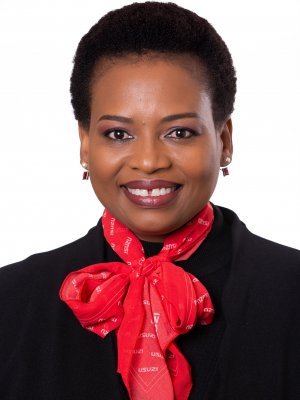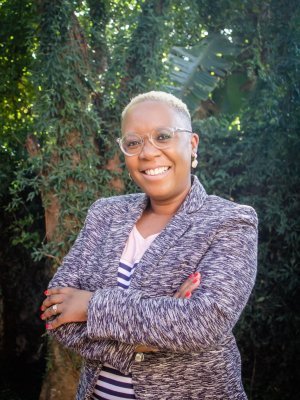An evolving field
Responsible leadership, as a concept, is still finding its feet as an aspect of management education. A central theme, however, remains the view that responsible leaders can guide a company’s long-term sustainability by virtue of being able to see the bigger picture, involve multiple stakeholders and successfully model ethical behaviours to the people they lead.
As the University of Zurich’s Audencia Business School, Christian Voegtlin, puts it, “Responsible leadership is based on the concept of leaders who are not isolated from the environment, who critically evaluable prevailing norms, are forward-looking, share responsibility, and aim to solve problems collectively.” In the past, their traits were often bracketed into the ‘soft skills’ category.
In 2015, Pew Research Centre assessed which leadership traits the public deemed more important – such as honesty, intelligence, organisation and decisiveness – and how respondents viewed men and women leaders on these key points. The study found that women placed a higher premium on intelligence, honesty, and compassion. When it came to political leadership, women were regarded as better able to arrive at a compromise and were seen as more ethical.
At a time when South Africa – and the world – are crying out for moral and ethical leadership, Dr. Paul Vorster from non-profit The Ethics Institute of South Africa argues that “anyone can be a hero”. Acumen sat down with five GIBS heroines to discuss their views on responsible leadership, how they seek to embed ethical behaviours into their way of leading, and whether the need for a more ethical leadership paradigm opens the door for women.
Generally, the five alumnae felt that responsible leadership was an issue that spanned gender. However, there was an acknowledgement that women were seen as being stronger when it came to the so-called soft leadership skills, such as listening, interpersonal abilities, compassion and communication strengths. These abilities are increasingly in demand as organisations seek to adapt following workplace disruptions caused by Covid-19.
Kholofelo Mothopeng, head of external communications at Liberty, whose views were strongly grounded on diversity and inclusion, stressed that responsible leadership should not be viewed in a vacuum from a gender perspective but rather through the lens of diversity and inclusion, seeing it as an “opportunity for anyone from historically marginalised groups to rise through the ranks”. While Stanbic Bank Kenya's head of brand and marketing for Kenya, South Sudan and Ethiopia, Thokozani Unyolo, felt this moment could potentially “open the door for us women” – but only if women prepared themselves to grab this opportunity by building networks, continuous learning and ensuring they had a sponsor or a mentor to act as a guide and champion.
Tebogo Direng, acting chief operating officer at Absa Bank Botswana, noted her experience working for a woman-led organisation (currently under MD Keabetswe Pheko-Moshagane and previously under Reinette van der Merwe) had certainly seen more responsible characteristics surfacing. While Botswana remains a largely bottom-line driven country, Direng said the women leaders she’s worked under instil greater empathy and a more values-based approach, which considers “the society and environment in which we are operating”.
This was also the experience of Phathiswa Sefatsa, former professional coach and current brand executive at Clicks Group, whose new CEO, Bertina Engelbrecht, has introduced a more open feeling to the company. “Yes, we still have to deliver – it’s retail, it’s numbers-driven – but it feels softer. The delivery and the way questions are asked change the mood in the room. The men also appreciate it,” Sefatsa observed.
How do ethical leaders balance policy, theory and practice?
Penelope Mkhwanazi, senior vice president for Revenue Generation (Rest of Africa) at Isuzu Motors, told us that “business, sustainability, and responsibility in all its forms has to be part of our daily bread and part of the agenda. You cannot separate the two.” Nor should companies divorce themselves from the impact their operations have on the environment and society as a whole. She suggested that, as a way of finding a balance between the guidance of governance policies and sustainable leadership, awareness was the first step, followed by an appreciation for interconnectedness.
“Whether it’s governance policies, sustainable leadership, or your bottom line, everything is interconnected, so you cannot run things in their own separate buckets,” said Mkhwanazi. This was echoed by Mothopeng, who reinforced that it was particularly important to understand the subtle nuances in a society as unequal as South Africa. “In a complex society, it requires us as leaders to make sure we are more awake to what is happening around us. It’s not enough to understand the businesses in which we operate but also the political economy and how this impacts business and our people,” she said.
For Direng, a former head of governance, compliance is a critical tool that bridges the divide between theory and practice. She noted that compliance has really changed the tone and ensured that key issues are firmly on the board agenda and that board members listen when potential pitfalls are highlighted. “There are so many glaring examples in front of us of what can happen to an organisation if we continue the traditional way,” she said.
How are African leaders doing?
Mothopeng responded to this potentially contentious question by commenting that the Eurocentric model of leadership, which is currently studied in Africa, fails to take account of the unique context in which African businesses operate and how leaders on the continent must respond. “If Ubuntu is important for us in South Africa, but I hold a leadership role in Germany and it isn’t important there, but individualism is more important, then that is what I as a leader should navigate,” she stressed.
While Mkhwanazi focused on the journey that lay ahead for African leaders and the fact that this was “an iterative process and a process of continuous improvement”, Unyolo was more critical of the continent’s efforts to embed responsible leadership, seeing it more as an ESG and corporate social responsibility conversation and motivation. “For us, it’s a new concept,” she said, noting that “there’s a lot of talk among African leaders, but little implementation, although the strategies they have are often brilliant”.
What more can African companies do to instil responsible leadership?
Expanding on her earlier point, Unyolo noted that companies should more clearly define what it means to be responsible and responsive, regardless of the individual's position. By embedding this thinking into the culture of a company, it would make it easier to live these values and to deliberately hire people who resonate with this culture, she said.
From a governance perspective, Direng focused on the fact that the day-to-day conversation at board level needed to align with governance and compliance from just “blowing out the numbers” to becoming an essential part of the boardroom agenda. For starters, in a country like Botswana, where most companies were still operating according to the third iteration of the King Code on Corporate Governance (King III), a quick way to increase the focus on accountability would be to adopt King IV, which expands on the role of a responsible corporate citizen.
Direng added that conversations around responsible leadership should never be the sole preserve of the board and should start at the “lowest rungs of the organisation” and be supported across the leadership ladder. This was echoed by Sefatsa, who noted that effectively ingraining leadership started with giving people power. “As a cleaner, you make a difference in that company, and you are a leader in your own right, so you can also be responsible and should have a voice,” she said.
This differed from Mothopeng’s view that “organisational culture mimics the culture in the top executive roles” and that because “the bottom mimics the top, leadership teams need to be conscious of how they lead and sell the concept of leadership”.
What approaches can be used to support better multi-stakeholder engagements?
One of the most visible ways senior leaders and managers display ethical and responsible characteristics is in how they engage with stakeholders, from employees and customers to suppliers. Drawing on empathy as a key trait associated with responsible leadership, Sefatsa noted that each leader has the power to ensure they engage with suppliers or a security guard with respect and that they come prepared to listen. “When you do, people see it is possible to move forward and that these CEOs and executives are just people too,” she explained.
Unyolo’s suggested approach involved preparing a stakeholder relationship matrix, which “starts with employees from various angles. I look at the leadership team and determine with whom it should be engaging and why, and then move beyond that to advocates and brand ambassadors, clients, the board, government ministries, regulators and shareholders. When I do that matrix, I determine why I should engage them and how often. That way, I can be part of the conversation.”
Mothopeng, meanwhile, felt strongly that the role of the team was going to become increasingly important as the complexities of doing business stretched beyond the skills of any individual and as multi-stakeholder engagements became increasingly more complex. “Gone are the days of using unilateral forms of decision-making and execution,” she said. “The only way we can deal with challenges is through multi-disciplinary approaches, so you require diverse skills to solve problems.”
This, perhaps, talks to the unfolding frontier of responsible leadership: the ability to look beyond a single steward or leader at the helm and focus instead on a raft of responsible individuals coming together with shared goals and values.
Are business schools doing enough?
When it came to offering an honest assessment of how business schools such as GIBS were helping students to hone their responsible leadership muscles, the responses were largely focused on finding ways to expand the impact of teaching responsible leadership beyond business schools.
Unyolo said that responsible leadership should form part of every first-year university course and, at business school level, should be increasingly customised to talk to the specific realities of sectors from financial services to FMCG. This, she said, could be supported by masterclasses and work with regulators to create measures to determine responsible practices. She also noted that this type of insight should be rolled out at secondary school level to help embed this thinking among the youth and across broader society.
This view was supported by Mothopeng, who noted that because few people have the chance to attend a business school, responsible leadership “should be taught at undergraduate levels, on sports fields, at church every Sunday, at home. Every part of our society. And it is not enough for it to be theoretical – it needs to be practical.”










